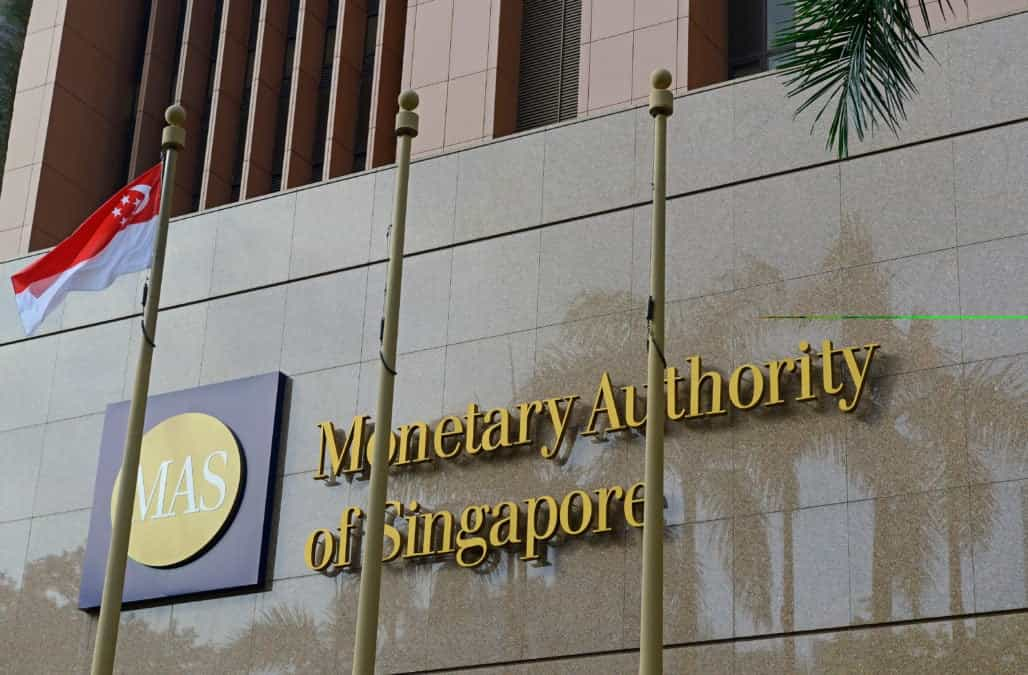Singapore regulator proposes banning crypto trading with borrowed capital

Quick Take
- The Monetary Authority of Singapore is seeking to ban debt-financed and leveraged crypto trading for retail traders.
- The regulator is also looking to introduce rules for stablecoin issuers.
We'd love your feedback.
In an effort to protect consumers, the Monetary Authority of Singapore (MAS) has proposed new rules for retail crypto investors, including that they should not trade with borrow funds.
The proposals are part of a consultation paper issued by MAS as it looks to further tighten the country's crypto regulatory regime. The rules come after a number of high-profile crypto firms collapsed this year, including Three Arrows Capital and Celsius. Several others are going through legal restructuring processes in Singapore, including Vauld, Zipmex and Hodlnaut.
The regulator reminded people that trading with credit or leverage can lead to losses greater than the investment amount. It's seeking to restrict crypto service providers from offering debt-financed and leveraged crypto trading, including trading via credit cards.
"MAS will adopt a risk-focused approach to regulating the digital asset ecosystem," the consultation paper reads. "To facilitate innovation in digital assets, regulations need to be clear and proportionate to the risks posed. These regulations should be periodically reviewed to ensure that they remain relevant, given the pace of innovation."
Other proposed rules by the regulator include restricting crypto service providers from offering incentives to retail customers, including free trading credits or tokens. That could include airdrops — free distribution of tokens by a firm to select users.
MAS is also looking to ban crypto service providers from using their retail customers' tokens for lending out.
"MAS proposes that DPTSPs [digital payment token service providers] should not mortgage, charge, pledge or hypothecate the retail customer's DPTs [digital payment tokens]," reads the consultation paper. "For non-retail customers, DPT service providers should provide a clear risk disclosure document and obtain the customer's explicit consent."
It is not immediately clear whether the proposed measure will impact crypto yield-providing and staking services, as yields and staking rewards are often provided by lending out customers' crypto assets.
"We do not believe that the regulations will extensively impact independent, non-custodial and global staking solutions providers such as RockX," Zhuling Chen, founder and CEO of RockX, a Singapore-based non-custodial staking service provider, told The Block.
MAS also issued a second consultation paper today on regulating stablecoins, focusing on "single-currency pegged stablecoins (SCS)."
It proposes to only allow the issuance of stablecoins pegged to the Singapore dollar or Group of Ten currencies. Issuers must also hold all the reserve assets used to back the SCS in circulation in segregated accounts, separate from their own assets.
"The reserve assets must be held with licensed banks, merchant banks, finance companies or capital market services licensees (CMSLs) providing custodial services in Singapore. Where the SCS issuer is a bank in Singapore, the reserve assets can be held under its own custody," reads the second consultation paper.
The proposed regulations may hinder the development of Singapore as a global hub for web3 innovation, according to Chen. He said Singapore "may lose its attractiveness as a destination for global web3 companies to build the latest crypto products and services. It will also make it more difficult to hire the best crypto and tech talent, using the country as a base to serve retail markets overseas."
MAS has been cracking down on the crypto sector for several months. Earlier this year, the regulator banned crypto firms from promoting their services in public spaces, including through online and physical advertisements or providing ATMs in public areas, which could encourage consumers to trade crypto on impulse.
The consultation papers are open for feedback until Dec. 21, after which final guidelines will be set. Crypto firms then have six to nine months to adhere to the rules.
© 2026 The Block. All Rights Reserved. This article is provided for informational purposes only. It is not offered or intended to be used as legal, tax, investment, financial, or other advice.



